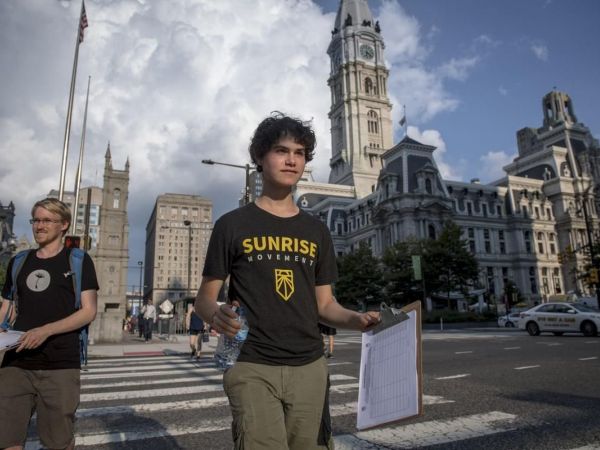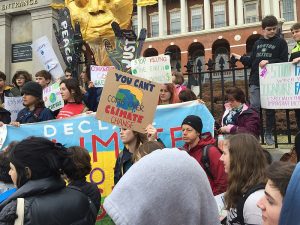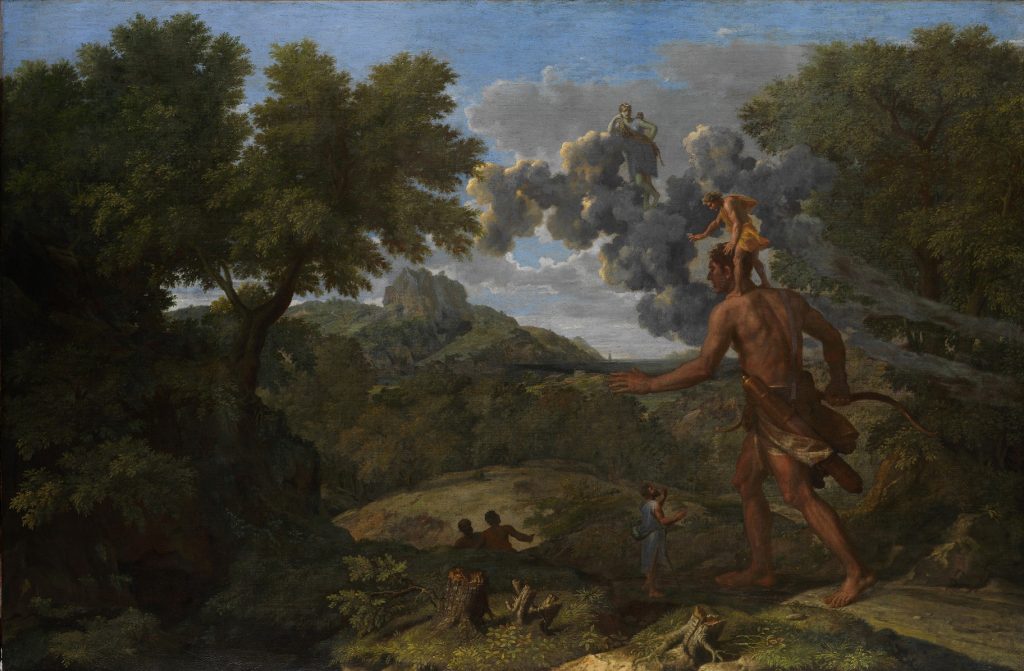by Susannah Sherry and Rafael Ornstein

The article below originally appeared in the Spring-Summer 2020 issue of the BPSI Bulletin, which can be read here.
One of the hardest jobs in parenthood is shepherding a teenager into young adulthood, “being there to be left,” and passing him the baton of responsibility. When our son graduated high school at 17 years old, he decided to take a gap year and “fix our broken world.” The house became eerily quiet. At the time he left, he couldn’t yet vote or seek medical care without our consent. He needed rides, and of course financial backing for some of his endeavors, though he was offered a small stipend. He joined “Sunrise” (an organization that advocates political action on climate change) and moved into a vegan “movement house” outside Philadelphia with a group of young adults who were charged with working for three political candidates with a focus on the climate crisis.
Emotions ran high in their household after the 2018 election, when the time arrived to disband and say goodbye. Their candidates had won by a hair, and most importantly, the Democrats had taken a majority of the seats in the U.S. House of Representatives. To our surprise, we learned from his hasty phone calls that Sunrise was planning a sit-in at Nancy Pelosi’s office in the U.S. Capitol Building, to demand support for something we had not yet heard of: the Green New Deal, which had some appeal—although, from our perspective, it seemed unwise for them to protest the Democratic Speaker of the House.
We thought he was kidding when he announced that he had gotten arrested with other protesters at the sit-in, but it was true. A policewoman had clicked plastic handcuffs on his wrists, saying: “I hope that’s not too tight, honey.” He was told that he would be bailed out and this would only interfere with his future employment record if he wanted certain government jobs. He had read about and prized the concept of civil disobedience; but still, it seemed alarming to us that he crossed that line, and we thought his future more mature self may regret it. Yet, the decision was entirely out of our hands.
When the speech he gave in the Capitol halls “went viral”, we watched the number of viewer “hits” climb to over 14 million.
In this sudden moment of rising fame, we were by turns full of pride and excitement, and then afraid for his safety and of the anonymous haters targeting him. Huge numbers of strangers made comments—mostly positive, but some included contemptuous accusations that he was faking, psychotic, or autistic and utterly dependent.

He casually mentioned reporters calling for interviews, and soon after, there were invitations to speak in various settings, ranging from college seminars to temple meetings to the Boston Climate Strike in September. He was invited on a paid trip to New York to be filmed for a movie on young activists.
In a wonderful, exciting way, a wealth of opportunities fell into his lap and they have fueled further mastery, community ties, and led to other sources of inspiration. But on the other hand, we wondered if his youth, ripe with possibilities, had been somehow curtailed—given the sharp focus on his words in the Capitol—as he spoke for many in the country who also felt poised between hope and despair. It raised the specter of an idealist who follows his passion with a like-minded group and risks absorbing the rhetoric, and losing some individual judgment and choice in the process. As time has passed, however, he has in fact sustained his fierce devotion to political change and a commitment to dramatic presentation. He has delved more deeply into “storytelling” as a vehicle for activism, empowering youth leadership, and political change—and it has enhanced his world.
It’s so odd, and yet so expectable, that as parents we pour our full selves into caring for a child, only to then pull back and gradually relinquish decisions about his or her welfare; a child is, after all, an individual. Children require their parents to eventually give up control, and the law will one day consider them an adult. This occurred for our son on his birthday, just before the 2018 election.
His long-term investment in the political process had been a source of pride for us, and it had a curious life of its own—as do many interests and talents of our children. As a small boy, he loved reading picture books about presidential quirks, but we were still surprised when we discovered that he had signed up for Elizabeth Warren’s campaign. He was eleven years old and this was his only activity that did not require parental consent. He merely requested a ride to the headquarters.

In fifth grade, he saw the teachers organizing for salary increases and he got swept up in their enthusiasm and union buttons; he stayed after school, obtaining fifty fellow student signatures—although the page above the signatures was blank and no one knew what they were endorsing. He read the daily news assiduously, followed unemployment rates, local candidates’ websites, and considered the town fair a time to support issues and network with fellow organizers. We were pleased that his values reflected our own, as we had attempted to inculcate many of these values along the way. We also saw the benefits of his experiences of team collaboration and community affiliation. While we had considered the relative merits of “signing him up” for music, drama, and sports, this political interest just sprang up of its own accord.
He developed relationships with state level mentors and peers; they spent many hours meeting and knocking on doors.
As the High School Democrats’ “national chair” in his senior year, he was always “on a call,” and his cell phone seemed plastered to his ear. It was time consuming and required many hours of patiently resolving conflicts between committee members and delegating responsibilities. He felt torn about his own and his peers’ ambitions, but he matured as he took on the challenges of leadership. He also worked with kids from all regions of the country and many backgrounds, and this further expanded his worldview.
The next year, when he joined Sunrise Movement, he showed a clear preference for sporting wild hair and a bandana over wearing a shirt and tie. He felt relief leaving mainstream party politics and joining “an army of young people” demanding change. It was a relief to us that their process was nonviolent, and we enjoyed his ever-present 60s’ soundtrack, embracing Joan Baez and Bob Dylan. Other favorite songs we heard repeatedly included Tom Paxton’s (1964) “I Can’t Help but Wonder Where I’m Bound”, and Leonard Cohen’s (1974) “Chelsea Hotel No. 2,” with baleful lyrics: “I need you, I don’t need you.”
Even while experimenting with different identities, it was possible for him to hold onto a continuous thread of his values. He was on his own independent adventure, and on those terms, permitted us to visit him in Pennsylvania and led us on two days of door knocking to “get out the vote.” As he demonstrated the best techniques for engaging the constituents, we felt the surge of parental pleasure, mutually influencing each other, as well as sharing a meaningful moment. We were glad to convert our sense of helplessness about the current government into action and, with his help, to promote new leadership.
Now, in this strange and harrowing era of the quarantine, we are grateful to hear his voice in our house while on video chat, engaging constantly with many other young voices as he teaches storytelling, “public narrative,” with Sunrise Movement, and seeks out the most effective paths to a greener and more equitable society.
One of the voices we heard earlier today was from the Chelsea Collaborative, and we are following his lead and signing off to donate to this organization on the ground, helping with poverty, hunger and the terrible coronavirus pandemic. We are reminded of the well-known Graham Nash song from 1970, “Teach Your Children,” in which the generations are invited to understand and feel for each other, with these evocative lyrics:
And you, of tender years,
Can’t know the fears
That your elders grew by.
And so please help them with your youth.
They seek the truth
Before they can die.Teach your parents well.
[…] and know they love you.

References
- Now This. (2018, November 15). Teenager and Grandson of Holocaust Survivors Demands Climate Action. https://nowthisnews.com/videos/ politics/teenagerand-grandson-of-holocaust-survivors-demands-climate-action
- Rhino Atlantic. (1986, August 19). Crosby, Stills, Nash & Young. “Teach Your Children”. SoundCloud. https://soundcloud.com/crosbystillsnashandyoung/ teachyour-children
- Ornstein, J. (2019, November). Public Narrative: Storytelling to change the world. TED. https://www.ted.com/talks/jeremy_ornstein_public_narra tive_storytelling_to_change_the_world
***
The opinions or views expressed on the Boston Psychoanalytic Society & Institute (“BPSI”) social media platforms, including, but not limited to, blogs, Facebook posts and Twitter posts, represent the thoughts of individual contributors and are not necessarily those of the Boston Psychoanalytic Society & Institute or any of its directors, officers, employees, staff, board of directors, or members. All posts on BPSI social media platforms are for informational purposes only and should not be regarded as professional advice.
BPSI does not control or guarantee the accuracy, relevance, timeliness or completeness of information contained in its contributors’ posts and/or blog entries, or found by following any linked websites. BPSI will not be liable for any damages from the display or use of information posted on its website or social media platforms. BPSI cannot and does not authorize the use of copyrighted materials contained in linked websites.

